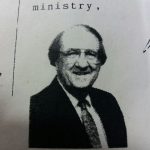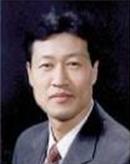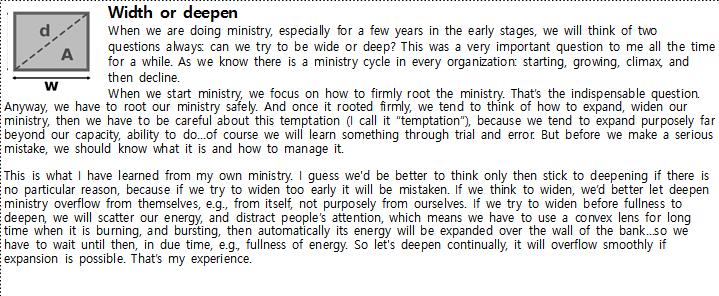#47

 “Hello, Mel. This is the Pope.” This telephoned greeting from Florida delayed my response. What would you say?
“Hello, Mel. This is the Pope.” This telephoned greeting from Florida delayed my response. What would you say?
It turned out to be a Pope – Rev. Don Pope, pastor of Smyrna Baptist Church in Smyrna, Ga. These Baptists!
He inquired about my coming for a Lay Pastors Seminar. In the course of the conversation, he asked, “Do you practice SIBKIS up there?”
“What’s that?”
“SIBKIS.”
“I don’t know. Tell me what SIBKIS is. Maybe we do.”
“See It Big: Keep It Simple. We believe in SIBKIS here. Do y’ all?” I told him that we believe it, but that we do SIB better than KIS.
Do you believe SIBKIS and practice it?
It is very important!!!!! To see “Tend The Flock of God” and all that means is to really SIB. To structure a ministry by which lay people will do the tending and KIS is a challenge.
The acronym PACE is a SIBKIS description:
P – Pray daily
A – Available in time of need.
C – Contact regularly
E – Example of a growing, through struggling, Christian.
As one lay person of the Ministry Group summarized after this ministry job description was formulated, “Lay people can understand it; they can do it, and when it is done they will know what they did.”
Don Esa, Associate Pastor of Madeira Presbyterian Church in Cincinnati, told me they use the formula CARE:
C – Contact
A – Available
R – Regularly pray
E – Example
If you are developing a Ministry, SIBKIS! If you have a ministry on line, when you do your evaluations, the SIBKIS’er you can make it, the better. While not losing sight of its bigness, the more simple it can be the better understood it will be, by both those who give care and those who receive it. And the more that will actually get done.
HAPPY SIBKIS’ ing! ●
DIGEST
(Byeong)
Dr. Melvin look at attentively, “Tend the Flock of God.” This commandment from God is no problem. But it is general, called SIB, only See It Big here! The issue is that if pastors give, and preach on the only general descriptions, people don’t understand well. Of course they know what is that when they hear the preaching but tend to forget right away as soon as getting out of church door. That’s fatal mistake. Most of preachers are not think of this problem seriously. So they make these repetitions my years, and then they complaining, “why people don’t do this and that nicely, because I have preached to them last 20 years, 30 years…etc” I used to listen these complains very often from the pastors.
That’s people and especially to lay people, because they are free to do it or not, even don’t think of it seriously? or just with medicare. They might think that it is just preacher’s preaching, just slogan, so optional to them…no obligation at all. That’s why Melvin thought to do more in details on which is KIS (Keep It Simple), then finally he developed P.A.C.E
At final paragraph, Melvin also said, “While not losing sight of its bigness, the more simple it can be the better understood it will be.” This is conclusion summary on his concept. “Not losing sight of it bigness, the more simple.” It means have a big view (probably ‘LPM’, which is Lay Pastoral Care Ministry), but should be more simpler in execute. This is the key point to me here.
He confessed that to structure a ministry by which lay people will do the tending and KIS is a challenge. As you see that, it’s challenging to lay people and also to pastors. Yes, it is not easy to have both, SIB & KIS at same time. As I mentioned in the other places, have a ‘long-term’ vision, but ‘short-term’ execute. That is might be correct here.
What we need here to have satisfaction in both, we need to make simple, and clear structure which means we may see clearly what, how, and when, and who will do what…so on. Actually it is speciality, so we need to collect people those whom have talented in this area. There are some people around who can do this job.
Dr. Melvin had both, because I think that he had SIB, and also KIS in everyday, at every areas, so it was possible to him. Look at his writings on the Network Newsletters, mostly they are on KIS, I might call it daily journal. That’s why I look at and read their Newsletters again and over again last many years. And also we need to read his first book, Can the Pastor Do It Alone? If we look at the book carefully, we will get the ideas, concepts, and know-hows on KIS (Keep It Simple).
FOOTNOTES
If we look at books, especially on the leaderships, I found something interesting, different between today’s book and the past books.
In the past, I mean 30-40 years ago, those leadership books was focused on the just general ideas, concepts, e.g,, what’s the leadership, qualities of leaders, definition of leaderships so on; but today’s books are totally different; focused on the, for instance; ‘One Thing’, How to be ‘Good to Great’, How to ‘Change from 0 to 10 smoothly’ and successfully.
So we pastors today need to think of this issue again seriously. If we don’t, it’s not easy for lay people to switch from generals to particulars. Because one reason is that they, lay people, are not sure its particulars are correct, or not. Always they need approval about it, so they don’t take a risk, and don’t touch in those areas, and even they do just a little bit, and also not fully switched into it. They try it, but only on the surface, at shallow level. ■
 Come over to Nassau and help us
Come over to Nassau and help us
“Can you(Melvin) come to Nassau to give us in seminar on pastoring?” The call was from FatherJames Palacious, Rector of St. Matthew’s Anglican Church in Nassau, Bahamas.
42 members took the seminar May 19-21. It was given at the Paradise Resort Hotel by
Mel Steinbron. After being equipped; they were commissioned as lay pastors by Bishop Michael Eldon. His outstanding sermon for that occasion is included in this issue of Network News.(following down here…not whole manuscript but some).
While in the Bahamas, Mel also preached at St. Matthew’s two Sunday Worship Services, spoke for Wednesday noon group, met with the official board and with the Bishop. He and his wife, Char, also vacationed for a few days while there.
Mel will be in Nassau again in July for five days to conduct a workshop for 150 lay people of the Diocese of Nassau and Bahamas, meet with the Anglican Clergy and preach.
We are doing something about it.
(This sermon was preached by Bishop Michael Eldon at a special service for commissioning 40 Lay Pastors in St. Matthew’s Anglican Church, Nassua, Bahamas, Wednesday, May 24, 1989.
Following the sermon, he commissioned them individually, one by one, calling each by name.
Fr. James Palacious is the Rector of St. Matthew’s) In the name of God – Father, Son and Holy Spirit. Amen.
In St. Paul’s first letter to Corinthians, the 12th chapter, the 12th and 13 verses – The church is like a single body which has many parts. It is still one body, even though it is made up of different parts. In the same way, all of us, whether Jew or Gentiles, whether….
Tonight we thank you God that some of you have taken seriously this fact. You have been conscious of the gifts that God has given you….
You have, then, been enabled and you are now coming forward to exercise that ministry in Lay Pastoring in a very special way. This is a great step forward,…
My prayer tonight, then, is that once you begin, your lay pastoring will not only bring you much personal spiritual fulfillment, happiness and success…. God bless you. God guide and strengthen you.
 (Ministry report)
(Ministry report)
At Training Center, they trained twice a year, spring and fall semesters, and fifty people are in each term, so formally produced 100 lay pastors every year. I have visited once a while and taught them with special topic, so the Center and our Institute was cooperated very well. Once we held our Institute national conference we invited those teachers from the Center, and they gladly came to teach some workshops. Especially senior pastor David Kim and Elder Lee were really helped our conferences.5 while we were cooperated, two people from Hallelujah Church involved in our Institute; Rev. Jongtae Kim and Rev. Kwangseop Jung.
Rev. Jongtae Kim was a chief associate pastor at Hallelujah Church and Rev. Kwangseop was a deacon. As they joined our Institute, we grow together; even Rev. Jongtae got Doctor of Ministry of Lay Pastors Ministry from the Fuller Theological Seminary, Pasadena LA, USA. He has a lot of experiences from Hallelujah Church so he putted excellent resources into our Institute, we got many benefits from him, and we were teaching together every seminar, conferences next many years, and he came one of the professor at PACE school, Nagaland India.
I guess three or four years later, our Institute needs to open our own Training Center, so we opened separated room which is attached to the National Office we have trained many pastors and also lay people there. And some of foreign students who are studying in Korea came and trained with Melvin’s first and second books, Lay Driven Church. It was small fruits but very significant for the future ministry. At Center three important people came and studied together; Rev. Park, Rev. Jang and Mrs. Rev. Jo. For instance, one day Rev. Park called to our office because I have translated 2-3 Preaching books into Korean, he saw books at the store and called me the man who translated those books. He wants to know more about preaching. He came and talk, then he got to know about this ministry, and trained at our Center, then he became our staff very soon, he still works with LPM Korea. He is very talented person whom exactly we needed for upgrade materially and strategically.
Rev. Jang, and Rev. Jo. These two people are very precious for LPM Korea. I already got to know Rev. Jo. She was studying English Bible many years ago with me, and still had a good friendship with each other, I invited her to join our ministry, soon she took Rev. Jang who was classmate at Westminster Graduate University in Korea, and actually three of them came into our group at the same time. Through them our ministry almost blossomed. They have developed nearly excellent materials and resources, even Rev. Jang made 350 pages of PowerPoint from Melvin’s second book. It’s amazed. We still use his slides in Korea and School in Nagaland India.
(Byeong’s Column)
Two fears
Fear is bound to arise when we try to start a ministry or project. In other words, we might say I’m worried. It’s going to come from two cases, and one is, “What if I fail?” i.e. fear of failure (Side of failure). The more people who have failed, the more likely they will feel that way. Another fear is, “What will happen if we miss this opportunity? (Side of regret)” That is, what to do with a given opportunity.
However, the former case is that it cannot start (“worried about failure”). Don’t most people do this? However, those who think of it as an opportunity have become stronger in the idea that they don’t want to, or “shouldn’t miss,” and those people start. [Worrying about failure versus worrying about missing out], two things. The choice is of course up to you.
If you miss it and will regret it for the rest of your life, you are responsible for it by accepting it as an opportunity, even if it is difficult. Timing is everything, as Peter Drucker said. In other words, everything is timing.
There are three chances in life, and it is true that one of them is a decisive opportunity. I talked with the chairman of Melvin University recently. I know it’s incredibly hard to build and get schools going. But the chairman was grateful for this opportunity. I think it’s too much. It’s not 100 percent commitment, it’s almost hundreds of times commitment. But it seemed to think of it as the last chance given to life. So Melvin University started two years ago and is getting better little by little as it continues. This is entirely due to the chairman. In particular, he said that he was grateful because he met many people through the position.
No pain, no gain, no crown is a bit boring, but it is. I appreciate the opportunity given, but it takes a lot of blood and sweat to achieve it. Maybe people can’t because they’re afraid of this. So I recently became aware of the proposition that glory goes with pain always. The greater glory is that it must go with greater pain.
Some people don’t even want to take the slightest risk. I think it’s probably because they’re afraid of what they will do if they fail. The fear that if it doesn’t work out, they’ll only lose money!
It seems to be a matter of choice after all. Will you give up and regret it for the rest of your life? Or will you give it another try? Don’t we know that it’s true that failure is a truck’s book, and success is only one book on 300 pages? If we are seized with fear of failure, we will not be able to act.
Is it fear of failure? Is it a fear of missing a given opportunity? Personally, I think it was definitely the latter. Opportunity – the establishment of the Melvin University – doesn’t come often, so don’t miss it. And I firmly engrave the slogan Timing is the most important as my own, and I promise to hold on to it whenever I have a chance in the future.

“끝” 이라고 하지만 진짜 끝은 아니다!
끝은 또 다른 시작이기 때문에 우리는 그것을 잘 사용할 필요가 있다. 졸업식 때 “졸업은 끝이 아니라 새로운 시작”이라는 말을 종종 듣곤 한다.
사실 졸업식이라는 말은 Graduation Ceremony라고 아시아쪽에서는 많이 써는데
서양에서는 Commencement라고 쓰기에 “이상하다!”라는 생각도 한적이 있다. 그래서 이 단어를 사전에서 찾아보니 ‘시작과 졸업’이라는 두가지 뜻을 갖고 있었다. 말 그대로 졸업과 동시 시작이라는 메세지인것 같다. 그래서 졸업은 끝이 아니라 새로운 시작이다라는 말을 많이 하는것 같다.
우리 사역에서도, 또 나의 개인적인 진행에 있어서도 끝과 시작이 계속 반복되는 것을 보게 되었다. 한가지 프로젝트를 진행하면 끝나게 되어있다. 그러면 또 다른 프로젝트가 시작된다. 그것은 의도적이기도 하지만 이전의 프로젝트에서 얻어진 노하우와 에너지, 모멘텀, 그리고 새롭고 업그레이된 프로젝트가 자동적으로 또 시작이 됨을 알게 되었다.
이것은 나 개인적인 경험뿐만 아니라, 장기적으로 성공하는 사역들, 조직들, 회사들에서도 이런 방식으로 진행되는것 같다. 이렇게 진행되다보니 우리사역도 벌써 24년이 지나가고 있다. 장기적이 되는 것은 당연하다. 단명해서는 안될 것이다. 시작, 끝, 또 시작이 반복되다보니 그렇게 된것 같다. 이것이 중요한 진행방법이고 확실히 받아들일 수 있는 개념인것 같다. 사역에서 하나의 프로젝트를 완성하고 나면, 우리는 더 높은 프로젝트를 시작하는, 또 다른 현실적으로 필요한 프로젝트를 시작하게 된다. 그러면 우리 사역은 더 오래 지속될 수 있을 것이다.
어떻게 하면 새로운 프로젝트, 업그레이드된 프로젝트를 만들 수 있을까? 우리 자신에 대한 질문일 수도 있다. 이것은 우리가 창의적이어야 한다고 말할 수도 있겠다. 창의적인 리더! 그게 무슨 뜻인가! 내가 어떤 일을 할 때, 특정한 프로젝트를 할 때, 나 자신이 그 프로젝트에 완전히 집중하는 한, 나는 내 자신이 창의적이라는 것을 알게 되었다. 사실 나는 원래 창의적인 사람은 아니지만, 현재 주어진 프로젝트에 최대한으로 집중을 하다보니, 내 마음에서 아이디어가 끊임없이 나왔다. 그래서 나는 창의적이라고 말할 수 있고, 계속해서 유용한 것을 만들어 낼 수 있다. 내가 창의적인 사람이 아니라 계속적인 시작-끝-시작을 반복하면서 자연스레이 창의적이 된 것 같다. 만약 우리가 변화하기 위해, 또 우리가 진행하고 있는 현재 상황을 업그레이드하기 위해, 새로운 아이디어를 추가한다면, 우리는 자동적으로, 무의식적으로, 또 주어진 새로운 상황에 “적응하기” 위해 창의적이 될수밖에 없다. 어제와 오늘은 다르기에 새로운 날에 또 적응하기 위해서는 그렇게 될수밖에 없다.
사실, 우리는 세상에서 완전히 새로운 것을 찾으려고 노력할 필요가 없는 것 같다. 사실, 세상에 새로운 것은 없다. 우리가 새로 발견하는 모든 것은 하나님의 손, 즉 하나님의 통치 아래 있는 것이고, 그렇게 되어있는 것을 재발견하여 사용할 뿐이다. 그래서 우리는 주어진 새로운 상황에 계속해서 적응하고, 또 그러면 우리자신과 사역은 계속적으로 발전하는데, 그런 것을 본 사람들은 우리를 창의적이라고 표현하게 된다!







